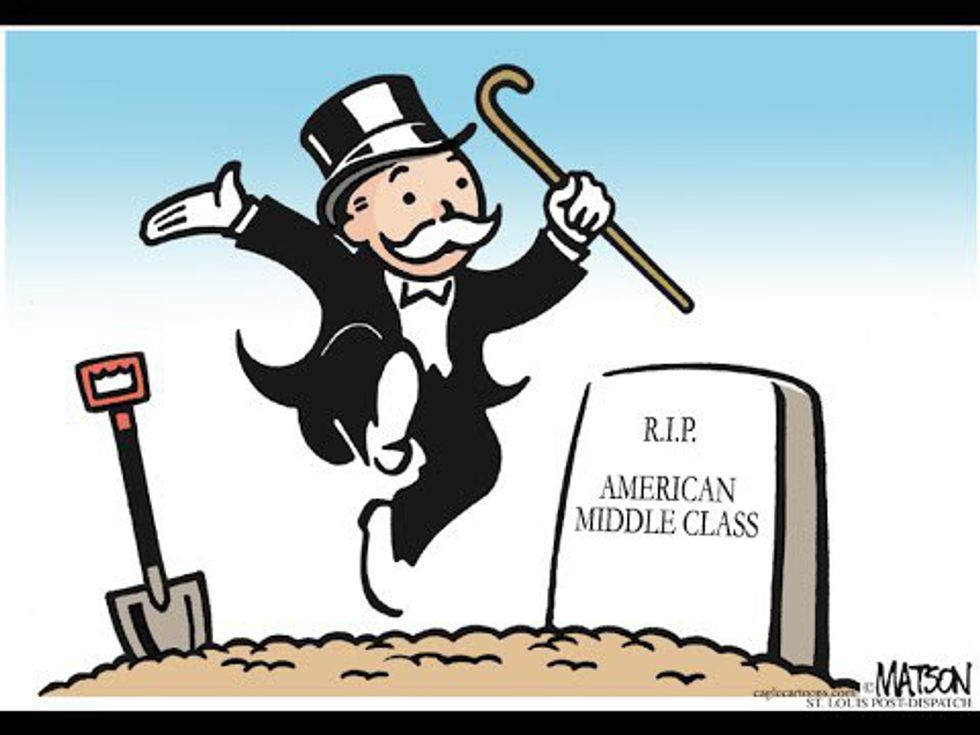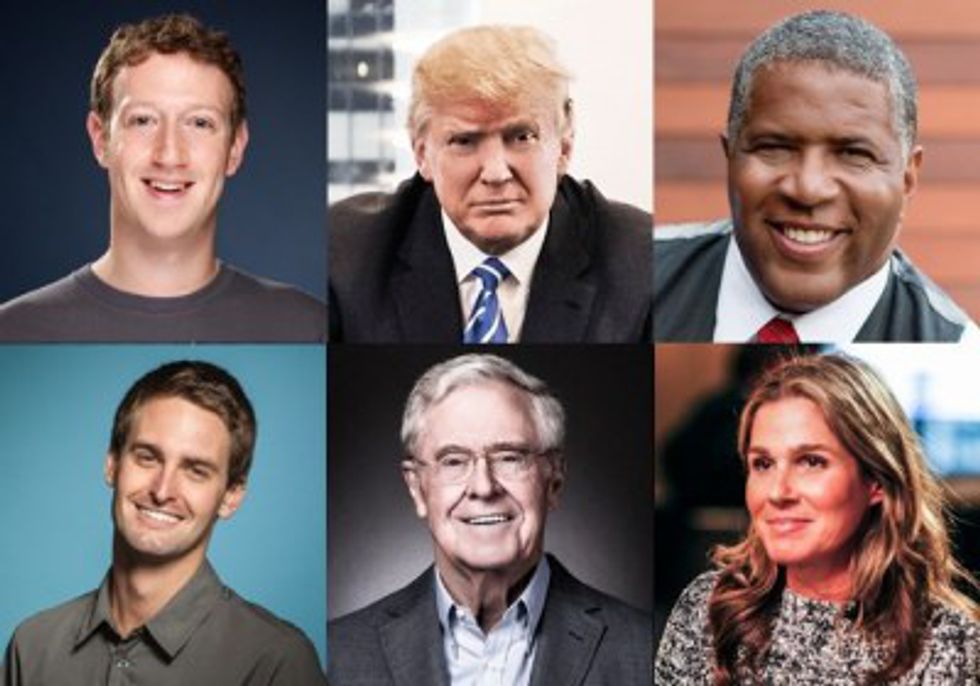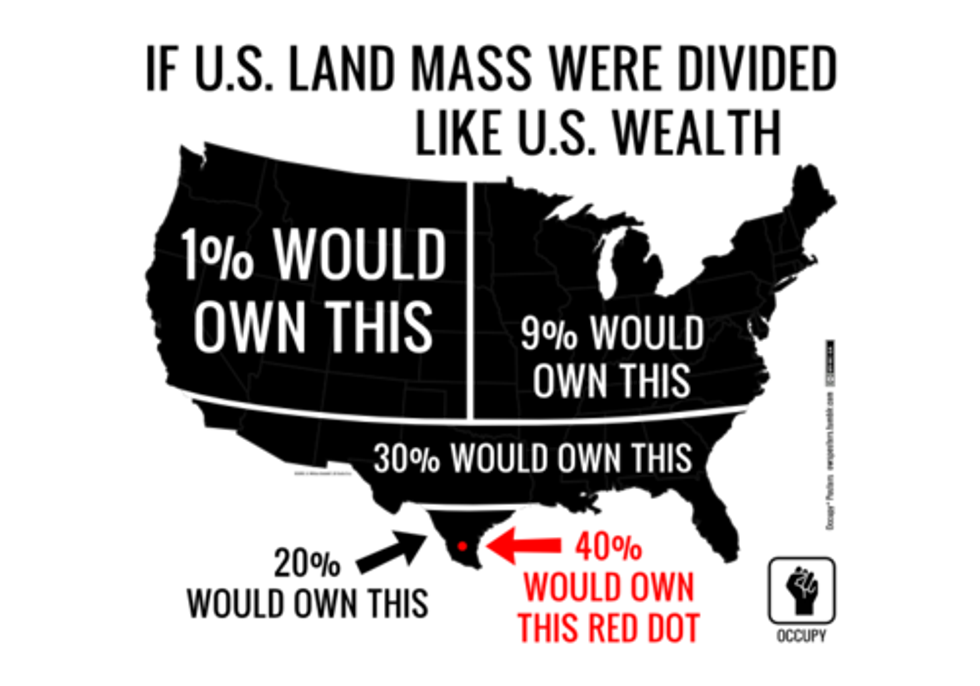Regardless of political affiliation, it seems that a majority of Americans can at least agree on this: the middle class is disappearing and the top 1% receives a majority of the wealth. The wealth disparity is undeniable. Some communities are populated by McMansions with luxury cars parked in the driveway, and a few miles away are impoverished communities where families struggle to make ends meet. Caught in the middle are workers who are losing benefits and employee status in an increasingly competitive job market. However, despite the public outcry, there doesn't seem to be much discussion on certain aspects of the issue. Before we can propose solutions, we first need to ask who the top 1% actually are.
Intuitively, we understand that the top 1% refers to Americans with the highest income, the greatest amount of wealth. The phrase evokes images of lavish luxuries, decadent lifestyles, and white men in suits puppeteering politicians. However, if you actually Google the question, "who are the top 1% in America" the first articles that come up are from 2012 and 2014. For an issue that impassions us so intensely, the lack of recent articles on the matter is odd, to the say the least.
To better understand who is being referred to when someone talks about the wealthiest people in the nation, we need to do a little bit of math. The U.S. population is around 330 million, give or take, and 1% of that is 3.3 million. There isn't a list of the 3.3 million people who have the highest net worth in America (nor am I suggesting that there should be), but there is a list of the top 0.0001%, the Forbes 400.
On the list, you can see exactly who the members of the top 0.0001% are, and a majority of those people aren't despised figures. They are cultural icons, such as Mark Zuckerberg, Bill Gates, Warren Buffet, and Elon Musk. They are revered, glorified, and have made great contributions to society, some of which that have revolutionized our daily lives. However, that being said, it doesn't change the fact that the Forbes 400 have a combined net worth of $2.29 trillion (for reference, the U.S. GDP is about $17 trillion, which means their wealth is equivalent to 13% of the U.S. GDP).
I'm not insinuating that Americans should rally together and storm the homes of billionaires with torches and pitchforks. Rather, the attitude towards wealth disparity in America should go beyond bitterness and cynicism and, frankly, hypocrisy. If the top 1% are the source of corruption and economic strife, why are they considered exemplary of the American dream? Would taking away Bill Gates' billions truly remove the barriers for economic mobility? It's questions like these that we must ask and have addressed. The conversation about income inequality needs to continue and grow and then move beyond discussion to decisive actions.
























